Front Sight Student Prep Manual
What Every Gun Owner Should Know Before Attending a Firearms Training Course
List of Figures
- Glock 17 Handgun
- Handgun Components and Nomenclature
- Glock Handgun Basic Components
- Glock Magazine Release and Slide Lock
- 1911 Handgun and Controls
- Double Action Handgun with Frame-Mounted De-cocking Lever
- Double Action Handgun with Slide-Mounted De-cocking Lever
- Double Action Revolver and Controls
- Schematic of Handgun Ammunition Components
- Common Semi-Automatic Handgun Calibers
- Common Revolver Handgun Calibers
- Example of a Proper Handgun Holster
- Example of an Incorrect Handgun Holster
- Remington 870 Shotgun and Nomenclature
- Schematic of Shotgun Ammunition Components
- Common Shotgun Gauges
- Relative Comparison of Shotgun Buckshot Size (not to scale)
- AR-15 Rifle
- AR-15 Rifle Nomenclature and Controls, Left Side
- AR-15 Rifle Nomenclature and Controls, Right Side
- AR-15 Rifle Basic Components
- Schematic of Rifle Ammunition Components
- Common Practical Rifle Calibers
- Clips vs. Magazines
Introduction
Front Sight opened its doors to the world in April 1996. Our goal in those early days was very focused: offer the world’s finest training in the defensive use of handguns, shotguns, and rifles.
To fill those original courses, I visited every gun shop in California promoting our facility, our curriculum, and our top-notch staff. Additionally, I contacted everybody I met during the years I spent traveling the nation receiving my own firearms training. For the first couple years at Front Sight, we filled the seats with like-minded gun people
consisting of professional soldiers, law enforcement officers, competitive shooters, and gun aficionados. While this was certainly exhilarating, I soon realized that Front Sight was influencing a very small sphere of individuals.
Think of our student body as a triangle. At the very tip-top are the gun enthusiasts who completely understood Front Sight’s vision, in the middle are people who may have shot weapons in the past but never had an interest in formal training, and at the base of the triangle are people who never even considered the potential that they may someday face an armed criminal who wants to kill them.
I decided to tackle the much larger, and much more challenging, task of reaching that 95% of the gun-owning population who do not know what they do not know, and bring them here to Front Sight where they can immediately get the training that they need.
We changed our marketing approach entirely and started to focus on mainstream America, that is, business owners, school teachers, professionals, soccer moms, etc. As we became more successful in reaching the base of the triangle,
we found that some of our assumptions no longer fit our new clientele. In the early days, we all spoke the same language. As an example, everyone knew the difference between a magazine and a clip, between ammunition and bullets, and between a grip safety and a thumb safety. That is no longer the case.
At Front Sight, we routinely train people who are brand-new to the world of firearms. They are completely green and many have never even fired a weapon. Unlike some boot camp
schools that run off these newcomers, Front Sight welcomes them each and every day, and we train them to exceedingly high levels. Unlike other people in the firearms industry, we remember what it was like the very first time we held a weapon. We welcome YOU!
This document is for you, the new shooter. We no longer make ANY assumptions about your knowledge or skill. Our goal with this manual is to give you as much comfort and understanding as possible about the subject of firearms training before you arrive at Front Sight. That way, you are better able to absorb the gunhandling and marksmanship techniques and don’t have to wrestle with terminology. If you encounter material in this manual which you already know, feel free to skip past it. Conversely, if you encounter material in this manual which you don’t understand even after studying it, feel free to contact us for further guidance.
You are in the right spot and Front Sight is going to train you correctly from the very beginning!


Dr. Ignatius Piazza
Founder and Director
If you are already familiar with firearms, Front Sight provides world class training, no matter what your level of experience. If you are new to firearms, by all means go to Front Sight and learn it right the first time. If you were a loved one of mine and wanted to learn to defend and protect yourself with a gun, I wouldn’t want you to go anywhere else but Front Sight!
General Thoughts and Comments
Safety
Safety is our primary objective at Front Sight. Everything we do is built around a safe training experience for you, our student. Safety is the responsibility of everyone on the range. True, the staff is conducting the course and we are the experts. However, if you witness something that appears unsafe, you also have the responsibility to holler Stop!
We will immediately correct the problem and quickly get back to the training. There is certainly no embarrassment in giving the Stop!
command. It simply shows you are paying attention.
Student Code of Conduct
The Front Sight instructional staff operates by a code of conduct which we use as a benchmark to gauge our efforts. Similarly, we ask our student to adhere to the Front Sight Student Code of Conduct. It is very straightforward, contains only two elements, and is relatively easy to achieve.
- Obey the Four Universal Firearms Safety Rules (defined below).
- Be respectful of your fellow students, the staff, and the facility.
Being respectful of your fellow students, the staff, and the facility is self-explanatory. Regardless, here are some examples:
- Please drive slowly for everyone’s safety.
- If you are a smoker, please use the butt receptacles.
- Please put your cell phone on vibrate during classroom lectures.
- For everyone’s safety, drugs and alcohol are a disqualifier.
- To keep the facility clean, please throw away your trash, whether on the range or in the classroom.
Four Universal Firearms Safety Rules
There are many different versions of gun safety rules.
You will see all sorts of rules in the owner’s manual of a new gun, on the back of every box of ammunition, and posted at the public range. Some of these lists are 15-20 items long and impossible to remember. At Front Sight, we simplify gun safety into four easy-to-remember rules.
- Treat every weapon as if it were loaded. Even if the weapon is actually unloaded, treat it with the same respect you would a loaded weapon. Just that respect will generally prevent a negligent discharge or
ND.
A negligent discharge means firing the weapon when you didn’t intend to. - Never let the muzzle (the front of the weapon) cover (point at) anything you are not willing to destroy. The fact that the muzzle exists means it is always covering something. When the weapon is in your holster, the muzzle is covering the floor. When the weapon is sitting on the nightstand, the muzzle is covering the adjacent wall. Are you willing to
destroy
the floor or the wall? The answer isYes
because that is what the muzzle is covering. We realize that you don’t intend to shoot the floor or the wall, but if you did, it would certainly not be catastrophic. Conversely, what if the muzzle were covering your hand, your leg, or a family member? That would be absolutely unacceptable and the results would be tragic. You need to be what we callmuzzle conscious
and never let the muzzle cover anything you are not willing to destroy. - Keep your finger OFF the trigger and, in fact, outside the trigger guard. When you plan to actually shoot the weapon, your finger is obviously on the trigger … that’s the way the gun operates. At all other times, your finger is OFF the trigger. Watch any action movie or TV series and count the endless violations of this rule!
- Be sure of your target and what’s in line with your target. On the range, this rule is very easy to follow. All the shooters will be on the same firing line, you will be shooting at a row of identical targets, and the bullets will impact a large, earthen berm just behind the targets. It doesn’t get any easier than that. However, on the street, it’s a different story. A confrontation on the street often takes place in a chaotic, low-light environment, against multiple adversaries, with innocent bystanders nearby. The first question you need to ask is
Is this the right guy; am I about to shoot the correct person?
If that answer isYes,
then you need to know if someone is possibly in the foreground who is about to step in front of your weapon and accidentally be hit. Lastly, you need to know what is in the background behind your adversary. Your bullet may well penetrate right through bad guy and continue down range. You need to know what that bullet is going to hit. You need satisfactory answers to all three of these questions BEFORE you press the trigger. It goes without saying that once you fire that shot, you cannot alter its course … and you certainly cannot get it back. You need to be absolutely sure of Rule 4 before you press the trigger.
These safety rules are very cleverly designed. First, they are easy to remember and apply. Secondly, you must violate two of the rules before anybody gets hurt. Violating just one of the rules is bad news, but nobody bleeds. You must actually violate 50% of the rules before anyone gets injured. For example, if you point a gun at a loved one (violating Rule 2) but your trigger finger is straight (obeying Rule 3), nobody will get hurt. (Your loved ones may hurt you later!) If you fire the weapon unintentionally (violating Rule 3) but the muzzle was pointing in a safe direction (obeying Rule 2), nobody gets hurt.
The bottom line is, obey the Four Universal Firearms Safety Rules and everyone will be safe, all the time.
It is very rare that Front Sight sees a student who is so chronically dangerous and/or disrespectful that we need to dismiss them from the training. It has happened only a couple times over the last decade. However, for the safety of everyone involved, Front Sight reserves the right to terminate the training and dismiss anyone who is unwilling to abide by the Student Code of Conduct.
Front Sight is more than just a place to learn to shoot, although it excels at that. Front Sight is a place to learn when to shoot, what to shoot, and the consequences that come because you shot.
You will have a very good understanding of how to use a weapon, why you need to know how to use a weapon and how to avoid a situation where using a weapon is necessary. In addition, it will take weeks to stop smiling.
Your Individual Pace of Learning
At Front Sight, we have fine-tuned our curriculum over the years so that everyone benefits, regardless of your existing skill level. Whether you are an experienced shooter or brand new, we will work with you on exactly what you need. If you are more advanced, we will help you perfect every aspect of your technique. As the course progresses, even the experienced shooter will be challenged. If you are brand new, we will concentrate on one technique at a time to make certain you are comfortable with it before we move on. If appropriate, we can work with you one-on-one. We will work with you patiently and consistently for four days. If you start to feel fatigued or overwhelmed, simply speak up. You are always welcome to sit out for a relay, or revisit skills which may still be giving you trouble. However, we can only assist you if you give us feedback!
Questions
There is no such thing as a stupid question.
The only stupid question
is the one that goes unasked. Feel free to interrupt at any time, whether we are in the classroom or out on the ranges. I’ll go one step further and say it is actually your responsibility
to ask a question when something is not clear. If you attempt to progress past a misunderstanding, you won’t do very well from that point forward. Speak up!
Concerns
Front Sight trains tens of thousands of students every year. We make a sincere effort to satisfy each and every one of those students and we are very successful. I am completely certain you too will love your training experience at Front Sight. However, if you find something that you feel falls short of your expectations or needs attention, please tell us. Please tell us right then! We will make every effort to correct the shortcoming immediately, on the spot. It doesn’t help anybody if you send an e-mail two weeks after the fact describing a problem which could have been fixed. We want you to be happy right now!
Front Sight will get you better each day; you’ll become safe, competent, and ready to defend yourself and family. I find it great for 15 to 25-year-olds, to teach them situational awareness, which is very maturing. I have started a program to get my nephews and nieces through the 4-Day Defensive Handgun class. Every young woman will be better off attending the course prior to heading off to college. Even if they don’t plan to have a firearm.
Front Sight Philosophies
At Front Sight we have coined a few phrases which vividly encapsulate our philosophy. Below are a couple of examples.
You Are the Weapon; Your Firearm is Just a Tool
When it comes to defending your life, you are the weapon. By you
we mean your mind, and your ability to think, form a plan, predict outcomes, and concentrate. You are the weapon, you are the one who will win this fight. Granted, you will select a tool to get the job done. That tool may be a fist, a knife, or a handgun. Just as likely, that tool may be your cell phone to dial 911
, it may be your feet as you simply run away from a bad situation, or it may be your voice as you talk your way out of the problem. You obviously need a tool, but the tool is secondary. The WEAPON is always YOU.
We discuss these concepts in greater detail in your classroom lecture titled The Color Code of Awareness and the Combat Mindset.
Any Gun Will Do, IF You Will Do!
This motto literally means that just about any gun will suffice to win a fight … if YOU do your part. Any beat-up, rusty, piece-of-junk gun will still get the job done if used by a highly skilled operator. The opposite is not true. In other words, the best weapon in the world is useless in the hands of an untrained, unskilled operator.
Your training will always trump your equipment. A well trained individual will always be able to make good use of a gun, even if:
- The gun is not the ideal choice or the ideal caliber.
- The gun belongs to someone else and you just picked it up off the pavement in the middle of a fight.
- You are left handed and forced to shoot a right handed weapon.
- You are injured.
- The weapon malfunctions.
- Etc., etc., etc. You get the idea.
Of course, the best situation is for you to have a high-quality weapon to complement your high level of skill. Through your training at Front Sight, that will definitely be the case.
If you want to feel comfortable with the ability to know that you can protect yourself, a loved one, friend, or an innocent bystander — then you need to attend a course at Front Sight. You will have a blast learning how to safely handle your firearm and the knowledge and skill to protect yourself and loved ones. Every law abiding citizen should come to Front Sight.
How Good is ‘Good Enough’?
Good enough
means you have sufficient skill to win the fight you are currently engaged in. If bad guy is a 4 and you are a 5, then you are good enough.
If bad guy is a 4 and you are a 10, even better. Determining your skill level is pretty easy. We can go to the range and test your skills, no problem. The difficulty is you cannot predict the skill level of your adversary or the difficulty of the problem you will face. For example:
- You are
good enough
to handle a guy who pulls a knife on you. But what if it’s three guys? - You are
good enough
to handle the guy standing a few paces away trying to shoot you. But what if he’s all the way across the parking lot and armed with a rifle? - You are
good enough
to handle this knife-wielding idiot standing in front of you on the sidewalk. But what if he drags your child at knife point into a dark building you are not familiar with? - You are
good enough
to handle this guy standing 10 yards away and threatening you with a gun. But what if he has your wife at gun point, is wearing body armor, and is hiding behind your wife’s head?
All of the above scenarios are winnable with the right level of training and a robust Combat Mindset. As you progress through the different courses at Front Sight, we will make you good enough
to handle the above situations, and many more.
Since you cannot define the problem you will face, you cannot accurately answer the question how good is good enough?
All you can do is train to the highest reasonable levels. At Front Sight we encourage you to keep training because you are NEVER good enough.
I have received very specialized training in the military and have taken advanced training in other highly-ranked programs. This is the best with regard to utility, skill, and competency development based on lessons of the past, both military and law enforcement.
Terminology, the Basics
Gun
A general term applied to a firearm. It is not specific as to handgun, shotgun, rifle, etc. Example: Beware of the man who owns just one gun because he probably knows how to use it.
Weapon
Any mechanical device which can be used to cause harm, or stop someone else from harming you. A gun is a weapon and we commonly interchange the two terms in our firearms courses. Example: Load your weapon.
Ammunition/Ammo/Rounds
These are all terms applied to cartridges which supply the gun and allow it to fire. Example: I only have 10 rounds left
or The malfunction was caused by bad ammunition.
Bullet
The portion of the ammunition which leaves the muzzle of the gun and travels downrange. Example: The bullet hit the target in the perfect spot.
Brass/Empty Brass/Spent Shells/Empty Cartridges/Empties
These are all terms applied to the leftover portion of the ammunition after it has been fired. Example: We shot so much ammo that it took an hour just to pick up the brass.
Magazine/Mag
The spring-loaded device resembling a box which holds ammunition. Example: This .45 magazine holds 10 rounds while this 9mm magazine holds 15 rounds.
Clip
A metal device which has no spring and holds ammunition. Example: I purchased a bunch of full-moon clips for my revolver.
Fantastic! Stupendous! Every time I step foot on Front Sight property I learn something new. As a firearms instructor, I have found that the most knowledgeable and dedicated instructor cadre in the business can be found at Front Sight. When I am asked about other training schools, the first words out of my mouth are Front Sight!
Semi-Auto/Semi
A weapon which fires one round with each press of the trigger and the loading process is completed by the weapon itself. Example: I like my Glock and AR-15 because they are semi-autos.
Revolver/Wheel Gun/6-Gun
A handgun which contains the ammunition in a revolving cylinder. Generally holds six rounds. Example: I carry a .44 Magnum revolver in Alaska as bear protection.
Holster
The pouch-like device which holds the handgun securely and covers the trigger. Example: When I was done shooting, I put my 1911 back in the holster.
Long Gun
General term applied to shotguns and rifles. Example: I have shot numerous long guns but I have never fired a handgun.
Sling
The carry strap on a shotgun or rifle. Example: I need to get a sling for my AR from the Pro Shop.
May also be used as a verb with long guns. Example: Once you have unloaded, please sling your weapon.
Red Gun
An inert piece of plastic in the shape of a gun and used as a training aid. The color is often red resulting in the name. Example: We did a tactical exercise where we used only red guns and our brains!
Eyes and Ears
Industry slang for eye protection (glasses) and hearing protection (plugs, muffs, etc.). Example: Come down to the 7-yard line with eyes, ears, and ammo.
Square Range/Range
The training area where live fire is conducted with a group of students. Generally in a square or rectangular shape. Example: I was on Range 6 for my 4-Day Defensive Handgun course.
Front Sight is among the best training I have had in any setting. Demanding and professional, yet done in a supportive atmosphere with good humor. I am very impressed with the quality of the instructors. Uniformly intelligent and articulate. Quite a group. Quite an organization. Bravo!
Firing Line
The designated distance from which a group of student will fire. Usually in yards or meters. Often designated with rope, survey whiskers
, or paint. Example: All the joking stopped as we stepped up to the firing line.
Target
The item to be shot at. Generally a sheet of paper or a steel plate in the shape of a human. Example: With my rounds all over the target, it’s clear that I need more training.
Simulator
A training area used to simulate a real-life situation, such as a home, office, or parking lot. Example: I was shooting so well on the range, but I think the stress got to me in the simulator.
Firing Side
The hand or side of the shooter that grips and fires the weapon. Example: Use your firing side thumb to press the magazine release.
Support Side
The hand or side of the shooter opposite the firing hand or firing side. Example: Remember to close your support side eye when you are focused on the front sight.
Relay/Relays
The group of shooters which are up on the firing line at any one time. Generally, there are two relays on each range. Example: First relay, step up the 5-yard line. Second relay, fill your magazines.
Shooter-Coach/Student-Coach
The system of training in groups of two: one student or shooter, and one coach. This system improves safety because there is always a 1:1 ratio on the firing line. The knowledge and abilities gained from functioning as a coach
greatly augment one’s understanding of the subject matter. Example: I was a little nervous about the student-coach program until I gave it a try and realized I was learning twice as fast.
Negligent Discharge/ND
The act of firing a round you didn’t mean to. This results only from the violation of the Four Safety Rules. Example: I read in the paper where a man had an ND and shot his television.
Although I’ve been a gun owner for many years, it shocks me to think about how little I knew about properly shooting a handgun before starting at Front Sight. Thank you Dr. Piazza and Front Sight instructors! I highly recommend your school for anyone from the first-time shooter to the long-time gun owner and experienced shooter. The instruction and teaching methodologies are excellent. The instructors are personable and friendly and the atmosphere is supportive.
Range Master
The staff member who is responsible for running the course. Example: Our Range Master did a great job of keeping us on track.
Malfunction
A temporary stoppage in the functioning of a weapon. Example: I bought the cheapest ammo I could find and almost every shot resulted in a malfunction.
Thoracic Cavity
The area of the human body roughly defined as the chest. This is the primary target when shooting in a defensive situation. Example: The thoracic cavity is the primary target because it contains the heart, lungs, and major blood vessels.
Controlled Pair
Two, well-placed shots to the center of the thoracic cavity. Example: This exercise will be a controlled pair from the holster in 1.5 seconds.
Cranio-Occular Cavity/Head Shot
The area of the human head roughly defined as the eye sockets and the sinuses. This is the area from the eyebrows to the bottom of the nose. This area of the skull is relatively soft and easily penetrated by a bullet. Example: If two rounds to the thoracic cavity didn’t stop your adversary, switch to the cranio-occular cavity.
The photographs on the following pages offer additional guidance on specifics weapons, accessories, and nomenclature. For the most detailed description of your particular weapon, consult the owner’s manual.
This was my first experience with guns. I felt the lectures and range time are an individual resource to me. I feel I can be a partner with my husband in protecting our home and family. I appreciated the individual attention — it allowed me to work more intently on form and technique. I also appreciated the time taken to explain about the anatomy of a gun — I knew absolutely nothing about guns before this class.

I have just arrived back at work after getting the opportunity to experience Front Sight’s 2-Day Defensive Handgun Course. All I can say is,
Wow!I came into the experience a little apprehensive. I was hoping it would be more than a bunch of hicks shooting rusted-out cars in the Nevada desert. I was so-very-wrong in even letting that thought cross my mind!
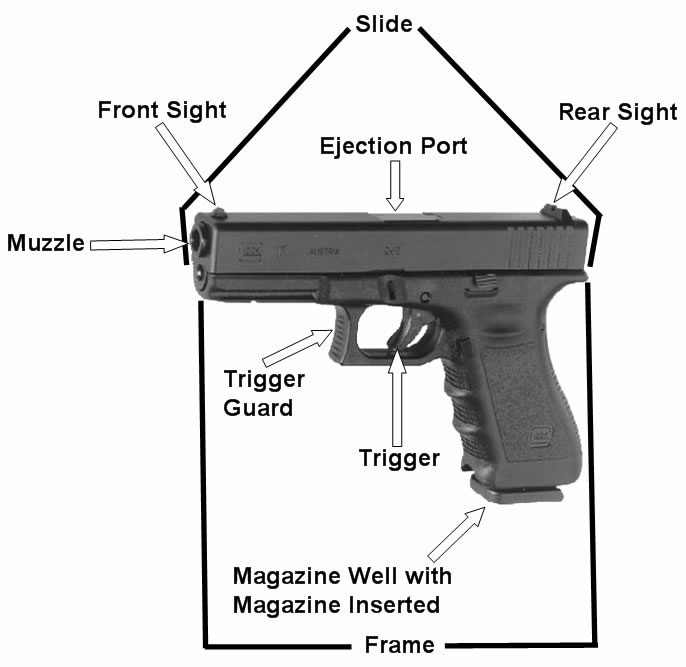
What Front Sight provides the shooter is almost beyond explanation. If you are even remotely serious about having a firearm and your responsibility as a citizen, you must attend Front Sight.
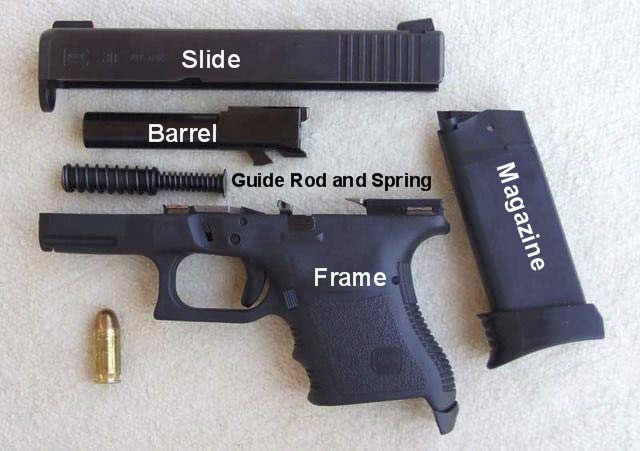
The defensive handgun course is an eye-opener that is jammed packed with real world information. Front Sight is not a boot camp with drill instructors, but rather a friendly and highly competent learning environment. I cannot imagine a better way to learn how and when to use firearms for your personal defense. I have had a concealed weapon permit for almost 15 years. I learned more in this two day program than in the previous 15 years.
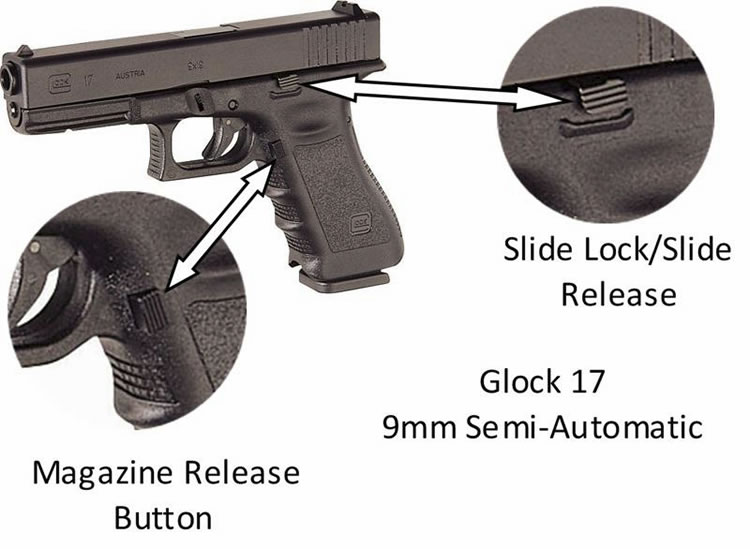
The Front Sight 4-Day Defensive Handgun course has absolutely changed my attitude towards the use of my handgun. I thought I knew about handguns, but that was not to be, until I came here to Front Sight. I give Front Sight 10’s across the board!
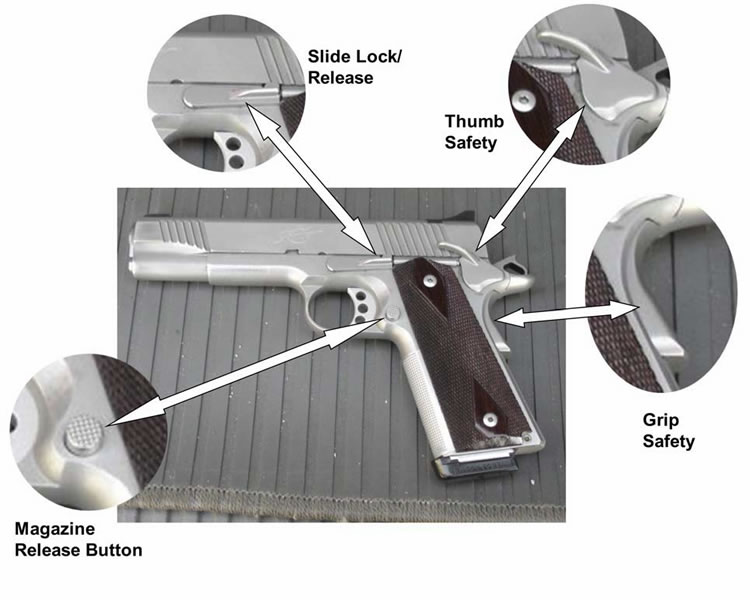
I was previously very afraid of my gun. Now, with the training from Front Sight, I’m no longer afraid. I feel so much more confident in myself. I feel I can protect myself and my loved ones. Front Sight made the training very fun and stress-free.
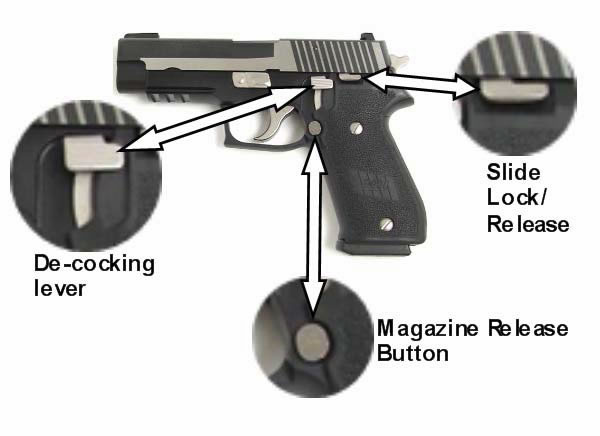
It was the most fun I have had in a long time. I learned a lot and feel very confident in my handgun handling because of what I learned here at Front Sight.
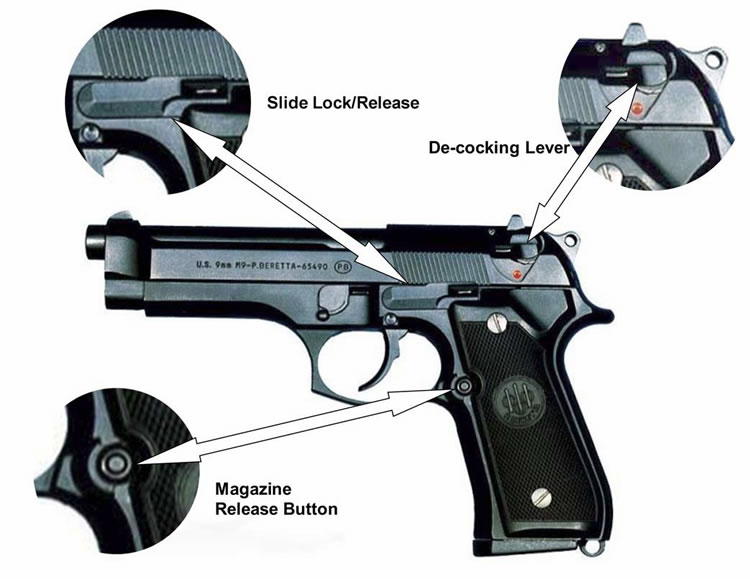
The second you walk in you are greeted in a friendly, professional way. It’s almost like the Front Sight staff are long-time friends. It’s relaxed, yet safe.
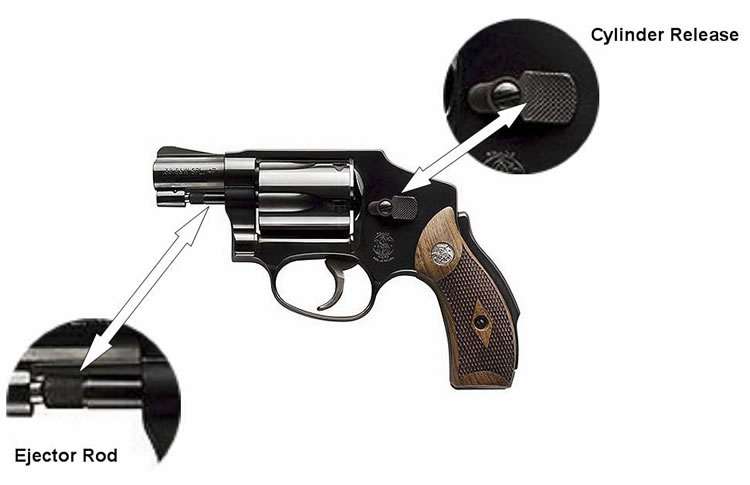
Front Sight provides a quality, focused, course of training. It will improve anyone’s comfort, skill level, and marksmanship. And, it is a fun and enjoyable weekend!
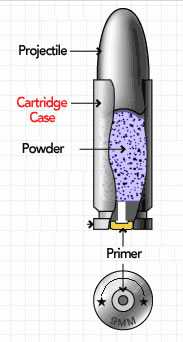
How ammunition works: Pressing the trigger of the weapon releases the firing pin and allows it to strike the primer of the cartridge. The primer ignites sending sparks into the case containing the gun powder. The powder rapidly burns, turning from a solid to a gas. The expanding gas increases the pressure inside the cartridge to the point where it overcomes the press fit of the bullet in the cartridge. The bullet begins to travel down the barrel of the weapon. As the powder continues to burn at a rapid rate, creating more pressure, the bullet is pushed faster, increasing its velocity until it leaves the barrel of the weapon.
Front Sight is the best! It’s world-class training for learning how to use a gun to protect yourself and your family.
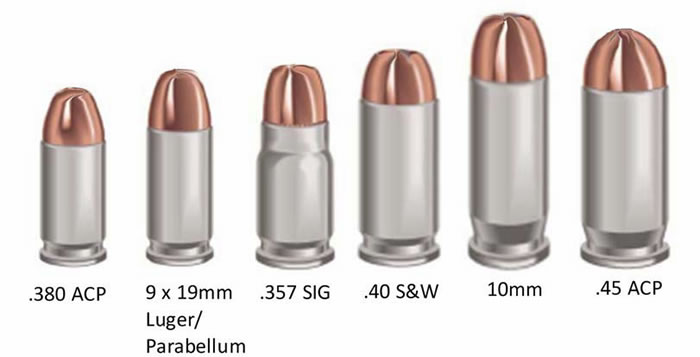
As long as you’ve decided to protect yourself and your loved ones, you may as well learn how to do it right. Learn from the best at Front Sight.
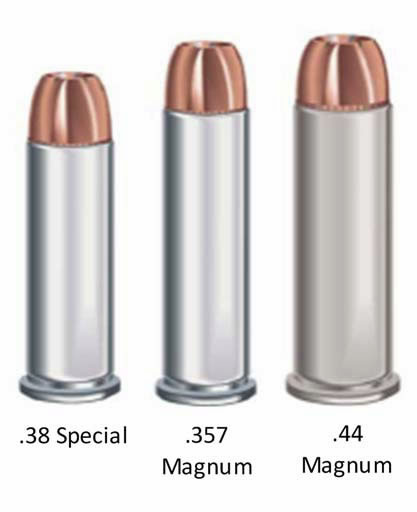
If you own a gun or plan to own a gun, don’t you think you should know how to use it? I have a tremendous knowledge of firearms and a lot of experience shooting them, but I did not truly know how to use them until I came to Front Sight. If you want to learn how to truly use a firearm, not just shoot it at a target range, you need to go to Front Sight.
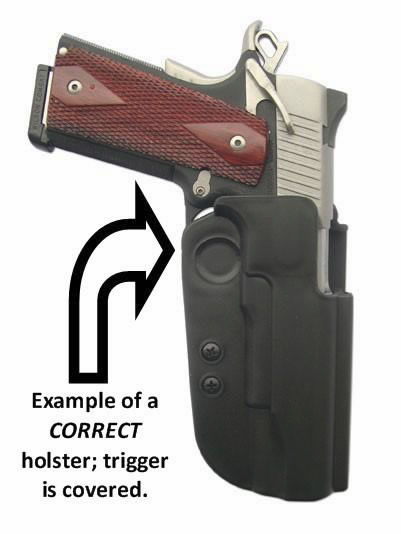
The information one learns from Front Sight is great. Both the info and practical application on the range were clear and easy to follow and flowed together very well.
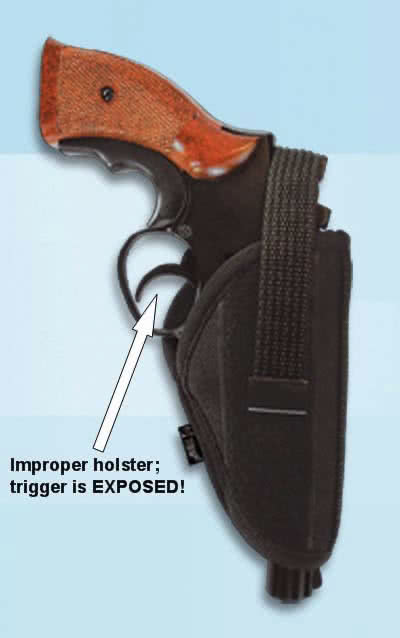
Front Sight has outstanding, competent training that will enhance your abilities to properly handle a firearm.
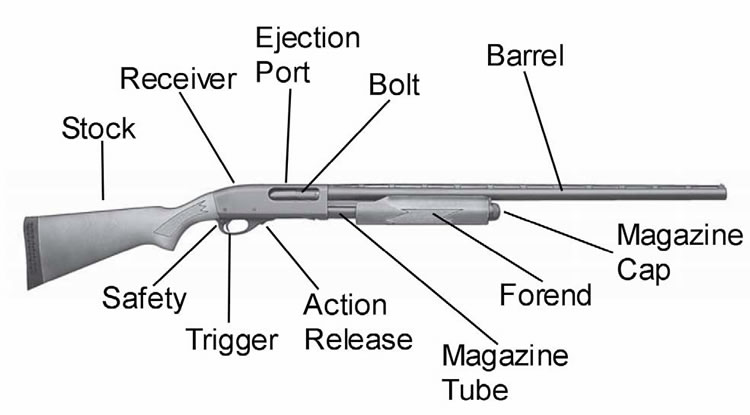
Going to Front Sight is like having Tiger Woods teach you golf or Michael Jordan teach you basketball.
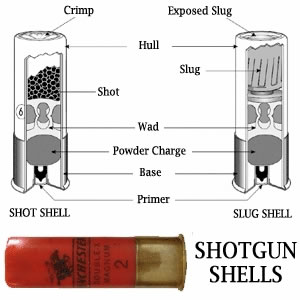
I saw men, women, and teenagers of all experience levels treated professionally, with respect, and having FUN! All of the instructors were truly interested in the students’ skills, progress, and safety. You cannot believe on Friday what you will be capable of by Monday. Worth the training at twice the price!
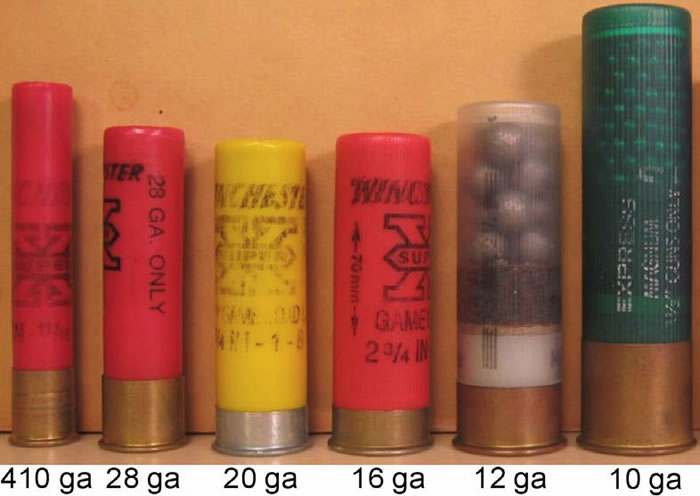
Front Sight has the best instructors, the best facilities, and they actually care about making people better.

This class is great and recommended for shooters of ALL skill levels. It teaches skills to people of all ages. Knowledge is power! This course offers firearm knowledge to keep you safe and informed.

Nowhere else will you get better tactics and habits than Front Sight. If you are in anyway uncomfortable with guns, this course will eliminate those concerns and improve your proficiency by leaps and bounds.
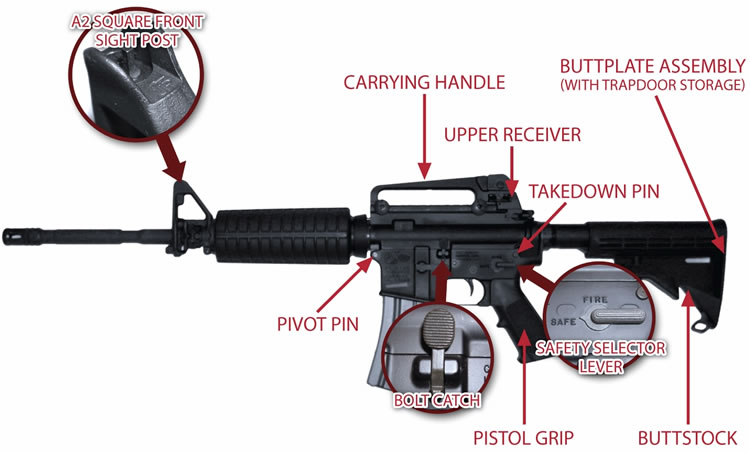
Front Sight is no joke! If you want to become an awesome shooter, do things that you never imagined you could do, and have the time of your life … come with me to Front Sight!
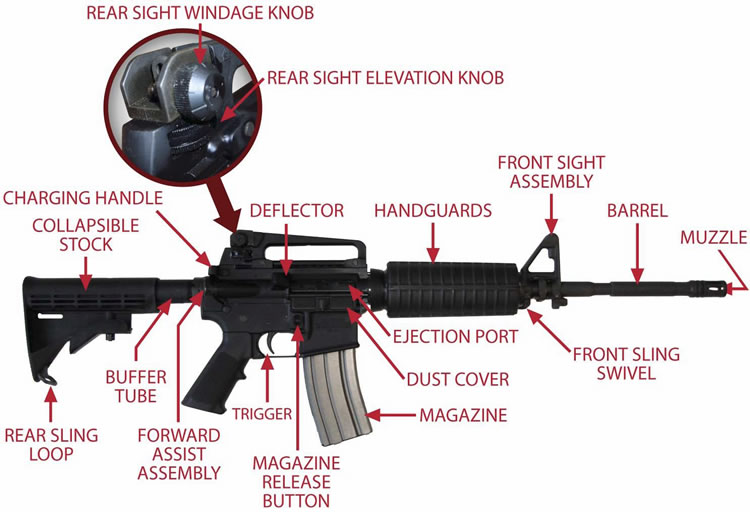
By far the best firearms training in the free world! Outstanding million-dollar instructors, million-dollar founder, and million-dollar development.
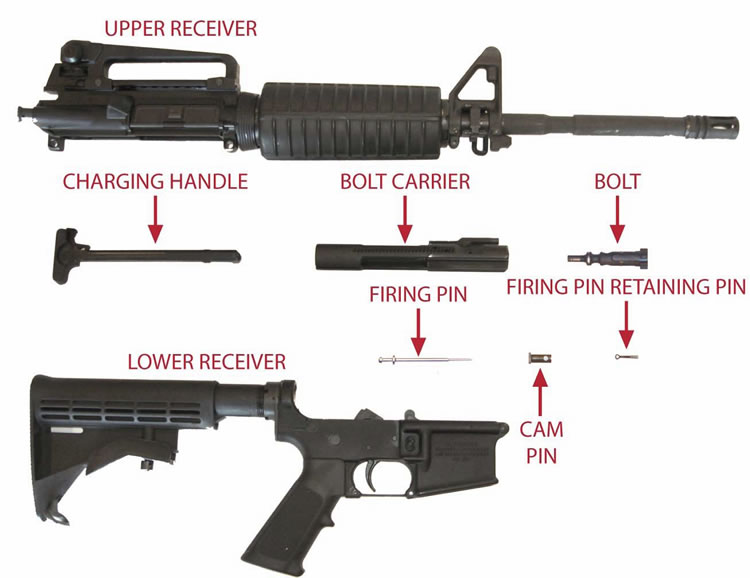
After 26 years of military service, this course has tremendously improved my tactical marksmanship skills. My worst performance now is dramatically better than my best performance before the course.
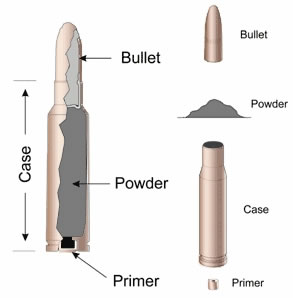
As a woman who was afraid of guns, I walked away in two days feeling confident that I could safely operate a firearm if the need arose. It was excellent training and demystified how guns operate and how they should be handled.
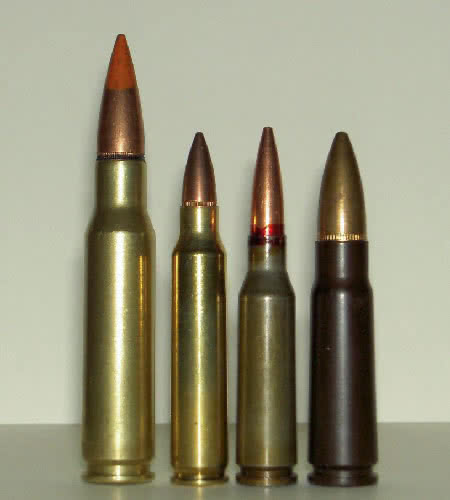
You will get the best training possible by extremely professional and knowledgeable staff. Front Sight is miles above instruction available elsewhere.
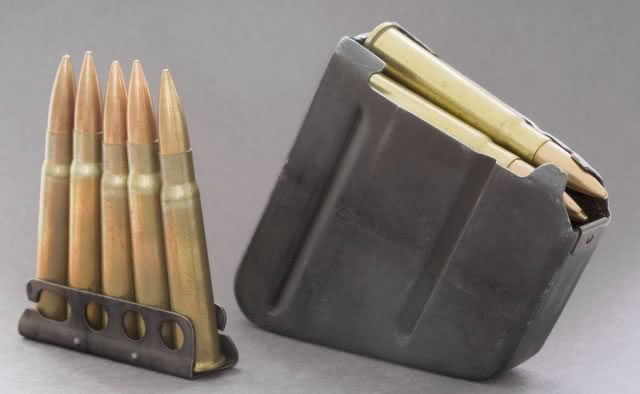
I have had 21 years in the Navy, four years in college, four years in law school, and this is the best training I’ve ever had!
Range Commands
Stop!
Stop is issued to immediately stop all activity on the range. It is issued only when there is a safety violation or potential safety violation. Everyone simply freezes in place until the problem is resolved. Anyone can issue the Stop
command, including students. Example: I yelled Stop! before he could turn around with the weapon in his hand.
Range is Clear
This means the range is physically clear of any potential safety issues. No one is down range. Example: We waited until the range was clear before we went forward to look at the targets.
Firing Drill
This command means the upcoming drill will be a live-fire exercise. Firing Drill means protect your eyes, protect your ears, and load your weapon. Example: The range in clear, Firing Drill.
Dry Practice Drill
This command means the upcoming drill will be conducted without ammunition. Dry Practice Drill means protect your eyes and unload your weapon. Example: The range is clear, Dry Practice Drill.
Set Up for a … (example Type 1 Malfunction
)
This command is specific to performing malfunction and reload drills. These drills are a hybrid as they involve live ammunition but they do not involve shooting. This command means protect your ears, protect your eyes, and set up for the prescribed activity. Example: Range is clear, set up for an Emergency Reload.
The Line is Set … Ready … Go
Sequence of commands for Dry Practice. Example: On the Go command, you will perform a tactical reload. Line is set, ready, go.
The Line is Set … Ready … Fire
Sequence of commands for a Firing Drill. Example: On the Fire command, you will fire a controlled pair from the holster. Line is set, ready, fire.
There are few places on earth that are sincerely driven to excellence. Front Sight is one of those places. Thank you for serving.
Turn and Face
After all weapons are safe, the Range Master delivers this command so he can see everyone’s hands and weapons. Example: Once you have holstered, please put your hands at your side and then turn and face us.
Go Forward, Check, and Tape Your Targets
This command dismisses the student from the firing line to inspect and repair (tape) their targets. Example: Okay we are done shooting. Range is clear. Go forward, check, and tape your targets.
I didn’t know what I didn’t know. Now I have a better understanding of not only how to shoot, but also gun safety and legal problems related to self-defense. Now, I have the skills and confidence to use a handgun to defend myself if, God forbid, it ever becomes necessary.
Flow of Events
Once you have scheduled your Front Sight course, you will receive a confirmation packet
from our corporate office in California which contains an abundance of material. Please read that material! It covers everything you need to know including logistics concerns like booking a hotel, how to travel with your weapons and ammunition, and ordering a lunch.
This section describes the Flow of Events
during a typical four-day course from the time you arrive at Front Sight.
Day 1, Detailed Itinerary
Approximately 6:00 Leave Your Hotel
Day 1 gets off to an early start. Your drive to Front Sight will take about 30-minutes if you are staying in Pahrump or about an hour if you are staying in Las Vegas. Don’t speed along the way because the local law enforcement officers strictly patrol the highways to reduce fatalities. On rare occasion in the winter, the mountain pass between Las Vegas and Front Sight will be temporarily closed for snow removal. Have no fear, if you were delayed due to snow, so was everyone else. You won’t miss a thing.
6:30–7:00 Arrive at Front Sight
When you arrive at Front Sight, you will be greeted by a uniformed staff member at the front gate. Don’t be alarmed by the crisp uniform. Remember, this is not a boot camp. The staff wears distinctive uniforms so you can easily identify them. The staff member at the gate will give you a sheet of paper with some very basic directions to follow. The handout tells you where to park, what to take with you to Sign-In, where the Pro Shop is located, etc. If you require Handicapped Parking, we have numerous, well-marked spots right up front.
Your cell phone works at Front Sight but coverage is a bit spotty. Feel free to ask a staff member where the best pocket of reception might be.
We have toilet facilities across the entire site so they are never very far away.
It was amazing — the time flew by, but I witnessed my own improvement over two days and left feeling confident about firing a weapon if I needed to … Now, I can’t wait to come back again for another class.
6:45–7:50 Sign-In
We have a large Sign-In table right in front of the ranges adjacent to the classroom. It is located in a very conspicuous spot and is well marked. You will again be greeted by a couple of staff members who will ask your name, look at your driver’s license, and ask what course you are taking. Additionally, if you want to be on the same range with friends, we will group you together. We will assign you a range number and then guide you to the Dressing Area
and Weapons Inspection.
This is where we make sure your holster, belt, magazines, and other gear are assembled correctly and that everything fits. We will then look at your gun, magazines, and ammunition. If something is amiss, we are able to sort it out right now, before the course starts. Safety is our primary goal at Front Sight … always has been and always will be. If you arrive with a weapon which is not suitable, we need to know before you get to the range. About 99% of all weapons which come through Weapons Inspection pass with flying colors. However, we sometimes spot a problem with the trigger, the safety, or some other feature. If you brought a backup weapon, we ask you to get it from your vehicle so we can take a look at it. If you did not bring a backup, we will get you setup with a rental weapon from the Pro Shop.
We also inspect your ammunition closely. Many of the malfunctions we see on the range stem from low-quality ammunition. At Front Sight we allow only factory new ammunition. We don’t allow reloaded or remanufactured ammunition. Similarly, we demand copper plated bullets for handguns and do not allow steel bullets for rifle. All these criteria may seem burdensome but they are for your safety.
Generally, the entire process of Sign-In, Dressing Area and Weapons Inspection takes less than 10 minutes. On occasion, we may spend longer, maybe even 30 minutes, getting someone’s equipment sorted out. But remember, it is much easier and smoother to fix problems NOW rather than wait until the course has started.
If you have reserved a rental gun from the Pro Shop, we will have it ready for you at Sign In. It will come in a kit with your name on it and also contain a holster, magazines, belt, and hearing protection. The Pro Shop is located in the back portion of the main classroom building. The staff at Sign-In will direct you where to go.
The Pro Shop carries a variety of supplies you may need while on site including ammunition, belts, holsters, magazines, sunscreen, hats, and T-shirts. We do not offer gunsmithing services at Front Sight which is partly why we ask you to bring a backup weapon.
Front Sight took me from unsure and unprepared -to confident, informed and ready to defend my family! If a 45 year old mother of four girls can do this, so can you!
Following Weapons Inspection, the staff will ask you to place all of your bulky and heavy items in the car. You won’t need those things until a little later in the morning when you get to the range. If you are in a handgun course, you will leave your handgun in the holster for the entire day. Please don’t remove it from the holster until you are on the range and are receiving direction from the staff. We get pretty nervous when we see someone fiddling
with a gun! If you are in a shotgun or rifle course, place the shotgun or rifle back in the car before heading to the classroom.
After depositing your gear in the vehicle, head to the classroom. At the front door of the classroom you will be greeted by the Classroom Manager who will also be in uniform. The Classroom Manager will verify that you have been through Weapons Inspection. The classroom is set up in a traditional lecture hall format with tables and chairs throughout the room and a stage up front. Pick any seat you like, but make sure it has a packet of papers and a pen. If you have a specific seating need for a wheelchair or anything else, simply tell the Classroom Manager. He or she will make it happen. While all the students are arriving, we play a DVD titled Front Sight in the News, Volume 1
which highlights some of the very positive attention Front Sight has received from the news media over the years.
A wide variety of beverages and snacks are available in the classroom. You may also enjoy breakfast and/or lunch prepared by the Front Sight Café located just steps from the classroom.
8:00 Welcome and Introductory Lectures in the Classroom
At 8:00, the Operations Manager will step up on the stage and welcome you to Front Sight. You will notice that he starts at 8:00 … not 8:01 and certainly not 8:02. This is by design and sends the clear message that we run the courses punctually.
9:15 Off to the Ranges
At 9:15 you will be dismissed from the classroom to head to your range. All the ranges are outdoors and have a shaded seating area and tables to hold your gear if needed. We supply water on the range to ensure that you stay hydrated. The desert is a demanding place and you need to stay hydrated, even during the winter months. You will also find basic first aid kits on each range containing items like Band-Aids, tape, aspirin, and Neosporin ointment. Feel free to use the first aid kits. You don’t need to ask us for permission, simply help yourself.
Front Sight is the perfect place to learn all about firearms. They cover it all. The instructors were very patient, approachable and never made me feel inadequate. I’m leaving this experience feeling like I could and would be able to protect myself and family.
The range activities are headed up by a Front Sight Range Master. In addition to the Range Master, there will be two or three additional Instructors or Line Coaches on each range depending on the exercises being conducted at that particular time. The tone and demeanor of the range staff is firm but friendly. Safety is our number one priority at Front Sight and we work tirelessly to achieve it. We run the range in a very organized, predictable, firm manner to ensure safety for everyone. We also expect every student on the range to contribute to safety. If you witness something unsafe that the staff hasn’t seen, you are authorized to holler Stop!
Full descriptions of range commands are presented in this manual.
We divide the class into two relays, meaning two roughly equal groups. We simply identify the groups as Relay 1 and Relay 2. We use the two relays to make use of the Shooter-Coach
training methodology. You will be on the firing line functioning as a shooter, obviously. Additionally, you will be up on the line functioning as a coach. This shooter-coach (or sometimes called student-coach) methodology has been used for decades with great success in other training venues. Examples of that are Martial Arts, SCUBA diving, corporate team development, and skydiving. The student-coach system is a tried and true way to learn. There are really three benefits to the shooter-coach program. First is safety. Having essentially a 1:1 ratio up on the firing line will make your training experience that much safer. Second, your grasp of a given subject matter significantly improves when you are tasked with helping others learn that material. And third, when you leave Front Sight, you will take with you the momentum you generated through the shooter-coach program and you will be able to continue training with your shooting partner. You will also be able to bring new people into this activity because, not only will you know the proper techniques, you will know how to DELIVER those techniques as well. For these reasons, you will definitely benefit from the shooter-coach program.
Front Sight firmly believes in Dry Practice.
Dry practice is the process of practicing with an unloaded weapon. Some people erroneously refer to this as dry firing
but you cannot fire a dry weapon. Dry practice allows you to engrain all the correct habits, all the proper muscle memory, without the stress, noise, and cost of live fire. Certainly, you also need to shoot live ammunition as part of your training, but most of your skill building occurs during dry practice. We believe in dry practice so much that we spend the entire first morning of the course strictly dry practicing. Similarly, we start each new technique with dry practice.
I did not know much about handguns before attending Front Sight. People would ask me why I wanted to do a 4-Day course like this. My answer —
I only know enough about a gun to be dangerous.I wanted to learn how to properly handle a gun and be able to use one to defend my family if the need should ever arise. I pray that I will never have to use this training in a defensive manner — but I know that I could and would.
Live Fire
is the process of actually shooting live ammunition. Live fire is the only way to verify you are correctly using the sights and correctly manipulating the trigger. You will definitely shoot lots of ammunition in your course but it only follows a period of concentrated dry practice.
The proper learning sequence to engrain a new skill is:
- Lecture. This is where you learn about the skill from hearing the Range Master’s lecture to the class.
- Demonstration. The instructional staff will demonstrate what the new skill or technique looks like when performed correctly.
- Dry Practice. As described above, dry practice is the ideal way to engrain the new technique into muscle memory without any distractions or stress.
- Live Fire. At some point, you actually have to shoot live ammo to verify you are engraining the proper skills.
- Live Fire Under Stress. Last in the learning progression is live fire under the stress of time pressure, multiple targets, photographic targets, or tactical scenarios. This step will illuminate whether you have the skills available to you without conscious thought or if you need more practice.
12:00–1:00 Lunch and DVD
We break for lunch on Day 1 at straight-up noon. Wash your hands immediately after leaving every range session to make certain all lead residue is removed. If you ordered a lunch through our partner Beach Café, your lunch will be waiting for you in the classroom in a box with your name printed on it. You have a one-hour lunch break but we always use our time wisely. During lunch we play the DVD titled The Front Sight Story, Chapter 1, Your Legacy.
This presentation beautifully describes our philosophies, our mission, and how we grew to dominate the industry in a few short years. If you have not yet seen this presentation, you will be impressed.
1:00–1:30 Classroom Lecture
Classroom lectures are a critical part of your training experience at Front Sight. The lectures are delivered by our seasoned Range Masters who are fully expert in the subject matter. Our first lecture is The Color Code of Mental Awareness and the Combat Mindset.
This lecture is perhaps even more important than the gunhandling and marksmanship skills we teach you on the range because if you adopt this information as your very own, you will likely be able to avoid a gunfight. I don’t care what ANYONE says, the best gunfight is the one you can avoid!
There isn’t any other place I know of where you can learn and improve so much in such a short period of time. This place is amazing!
1:30–5:00 Range Activities
Following the classroom lecture, you will head out to the ranges for the afternoon session. At the end of the afternoon, we guide you on your homework (yes, you will have homework!), how to return rental weapons to the Pro Shop, and how much ammunition to bring tomorrow morning. Remember to wash your hands upon leaving the range.
5:00–5:45 Classroom Lecture
The final classroom lecture of the day is The Moral and Ethical Decisions Associated with the Use of Deadly Force.
At the conclusion of this lecture, you will fully understand the elements involved in deciding whether or not to shoot. That may sound peculiar, but this is a very involved subject which requires your full consideration.
5:45 Depart Front Sight
Days 2–4, General Itinerary
Days two through four start at 8:00 and conclude at either 5:00 or 5:45, depending on the day’s activities.
Additional classroom presentations include:
- Problems 2 and 3 (Criminal and Civil Liability)
- How to Select a Proper Defensive Handgun, Tactical Shotgun, Practical Rifle, and Precision Rife and Considerations Regarding Weapons Modifications
- Tactical Movement
- Front Sight First Family Membership Opportunity (optional)
Additional range activities include:
- Presentation or
drawing
from the holster - Presentation from a concealed holster
- Delivering a
Controlled Pair
(two shots to the thoracic cavity) to stop your opponent Failure to Stop
which is a headshot fired when the controlled pair failed to stop your opponent- Gunhandling drills such as Tactical Reload, Emergency Reload, Type 1 Malfunction, Type 2 Malfunction, and Type 3 Malfunction
- Photographic targets
- Multiple targets
- Dry practice of tactical movement
- Live fire tactical exercises
If you are interested in learning how to use a firearm, Front Sight is the best location to develop your skills.
The final range exercise on Day 4 is the Skills Test, what some might call a qualification course.
Understand, you are not actually qualifying
for anything. This exercise is for you to gauge your progress over the last four days. Similarly, when you return to Front Sight in the future to take the 4-Day course again, the Skills Test gives you a quantitative benchmark for comparison. The Skills Test is also a valuable training aid because most people feel significant stress under test
conditions. The Skills Test gives you a taste of the stress you will certainly feel if you are forced to use your weapon to protect yourself or a loved one. Performing well is more difficult under stress and the more you prepare for it, the better you will perform on the street.
At the conclusion of Day 4, you will receive a Course Certificate. We have three divisions of certificates based on the results of your Skills Test:
- Distinguished Graduate (often referred to as
DG
). This certificate is for those who shot between 90-100% on the Skills Test. This is a very prestigious category and only a small percentage of our students receive a Distinguished Graduate certificate on their first trip to Front Sight. - Graduate. This certificate is for those who shot between 70-89% on the Skills Test.
- Certificate of Achievement. This is for those who shot less than 70%. This is our baseline certificate and most of our students receive this certificate on their first trip to Front Sight. The Certificate of Achievement does not mean you
failed
the course. On the contrary, it is often the recipient of the Certificate of Achievement who has shown the greatest amount of improvement over the last four days!
This class is not just about shooting a gun. I learned how to take care of a gun that won’t shoot. I learned how to deal with a gun safely, and the consequences that I may have to deal with, should I decide to shoot someone. I learned what I need to do and the tools I would need to protect my loved ones. I also learned that not all gun owners are rednecks in camouflage outfits! I met judges, lawyers, wives, teachers, etc.
Recommended Weapons
What weapon should you train with?
- If you don’t own a weapon and are going to rent one of ours, then there is really no decision. We will equip you with an appropriate, mainstream weapon which we know is a proper choice for your course.
- If you only own one weapon and want to train with it, bring it! Throughout your course, you will learn all the strengths and weaknesses of that particular weapon. In the end, that weapon may be perfect for you or you may want to go shopping. Either way, the place to learn about your weapon is at Front Sight, not on the street in a time of need.
- If you have been issued a weapon by your department, bring it. We will train you to exceedingly high levels with whatever you have been issued.
- If you are trying to decide from the dozens of weapons you already own or you are going to purchase a new weapon, then the following discussion is for you.
While it is true that any gun will do if you will do
, there are definitely some choices which are more appropriate than others. Below are a few things to consider when selecting a weapon.
Defensive Handgun
There are a couple of fundamental questions which need answering before we can recommend a proper defensive handgun.
First, what is the purpose of the defensive handgun? At Front Sight, we believe the role of a defensive handgun is to stop a fight that someone else starts. Thus, a defensive handgun is not necessarily a competition gun, or a hunting gun, or a recreational plinking gun. Certainly, there are lots of overlapping characteristics in all those weapons. However, we are focused strictly on stopping the fight that someone else starts.
Secondly, where are you going to place or carry this weapon? If you are going to carry it concealed on your body, you will obviously need a weapon of appropriate size. If, however, you plan to carry this weapon in a briefcase, or a purse, or simply leave it on the nightstand, then the selection criteria are slightly different.
Front Sight delivers a very carefully prepared course covering safety, self-defense, and the moral, ethical, and legal ramifications of using your defensive handgun.
The following are some factors to consider when contemplating the purchase of a defensive handgun.
- Reliability
- This weapon must be 100% reliable. Remember, we are not talking about shooting paper targets here. There are serious consequences to a malfunctioning weapon.
- Some weapons need modification before they are 100% reliable.
- Quality
- Pick a quality weapon you will trust in a fight.
- Size
- Appropriate to your needs (concealment vs.
house gun
). - Should fit your hand reasonably well. No weapon is going to fit your hand perfectly; that’s where training comes in.
- Appropriate to your needs (concealment vs.
- Weight
- Heavy enough to be controllable under recoil.
- Light enough to carry all day if needed.
- Super-light guns may not be the right choice due to extreme recoil.
- Sights
- Need good sights to get good hits.
- Robust, steel, fixed, with tritium inserts best choice.
- Trigger and Other Controls
- Easily usable.
- Simple (defensive shooting is hard enough without the gun being hard to use).
- Comfort
- No sharp edges or corners.
- Guns with sharp edges don’t get carried or practiced with.
- Caliber
- Bigger is generally better, within reason!
- Any reasonable caliber will do (9mm, 40 S&W, 10mm, 45 ACP).
- None will do very well compared to a shotgun or rifle.
- Cost
- Expect to spend $600-$1,000 minimum.
- Accessories
- Magazines. Stick with factory magazines. High-capacity magazines are the best choice if they are legal in your area.
- Flashlight. A flashlight is mandatory for a defensive handgun and it can either be attached to the weapon or separate.
- Carry device. The usual carry mechanism is a firing-side belt holster, which is required for your course at Front Sight. Although not allowed for Front Sight training, fanny packs, purses, shoulder holsters, thigh holsters, and briefcases are also popular.
I had been visiting the Front Sight web site for several years. After further local and Internet inquiries, I attended a two day defensive hand gun course, where I received the most professional, patient, and understanding instruction ever. The instructors are top notch. Now my competence, confidence and awareness have increased by at least 100%. I am proud to say I am now a Front Sight First Family Member.
What we Recommend for Home Defense
- By
Home Defense
we mean you are going to place this weapon on the nightstand or someplace similar and use it only if there is a disturbance at home. It does not need to be small and concealable. - We recommend a full-size, semi-auto, chambered in the largest caliber you can shoot well.
- Good choices are the Glock 22, Glock 21, 1911 Government Model, and Springfield XD.
- Fixed tritium sights, as discussed above.
- Attached flashlight (remember, big and bulky is not a problem here).
- High capacity magazine. You may not have the luxury of a spare magazine when someone breaks in, so the magazine in the weapon should be high capacity.
What we Recommend for Concealed Carry
Concealed
means you don’t want anyone to see it. Therefore, this is a smaller weapon than described above inHome Defense.
Certainly, one weapon could be pressed into service under both categories. If you are going to purchase only one weapon and use it for concealment and home defense, go with the smaller version.- We recommend a mid-size, semi-auto, chambered in the largest caliber you can shoot well.
- Good choices are the Glock 23, 1911 Officer’s Model, and Springfield XD compact.
- Fixed tritium sights, as discussed above.
- Separate flashlight. Carry a flashlight, by all means. However, carry the light separate from the gun to keep the overall weapon size to a minimum.
- Spare magazine. If you can successfully conceal a handgun and a separate flashlight, you can find room for a spare magazine!
- Holster. We require that you train with a firing side, belt holster which securely holds the weapon and fully covers the trigger. If your method of carry will eventually be purse, fanny pack, etc., we will give you some advice on those items during your course.
I would recommend this experience to everyone. I have been a victim in my lifetime and once is enough. I feel confident that I will not ever be a victim again.
What we DO NOT recommend for handguns
Pocket Pistols
such as very small weapons in .25, .32, .380 calibers.- Single action revolvers.
Tactical Shotgun
There are several, high-quality shotguns which are properly equipped for tactical use right from the factory. Below are the frontrunners.
Benelli M1 and M2 are very high-quality, semi-auto shotguns. These shotguns are legendary for their performance but they are expensive. They come from the factory well equipped for tactical use.
Mossberg 590 and 590A1 are quality pump-action shotguns. They are ergonomic for both right and left handed shooters. The Mossberg 590A1 is used by law enforcement and the military and is a very robust shotgun. The Mossberg 590 is the slightly simpler, civilian version of the 590A1.
Remington 870 is an extremely popular pump-action shotgun. The tactical
or police
models are well equipped with short barrels, long magazine tubes, good sights, and sling studs.
Remington 1100 and 1187 are very popular semi-automatic shotguns. Again the tactical models come well equipped from the factory.
Regardless of which shotgun you select, it will need a sling. A simple carry strap will suffice, as will the more elaborate tactical slings.
What we DO NOT recommend for shotguns
- Very long barrels such as
goose guns
- Pistol grip only stocks
- Very small or very large gauges (.410, 28, 10)
I would highly encourage anyone with the motivation to protect yourself and your loved ones to enroll now in a course with Front Sight. I was very impressed with the staff and quality of training. I went away from my 4-day Defensive Handgun course feeling very confident and empowered with my new skills and knowledge. I am already eager to return to learn more. Don’t hesitate to enroll now. It couldn’t be soon enough. Thanks again Front Sight!
Practical Rifle
The AR-15 rifle chambered in 5.56mm [sic] is by far the most popular and most appropriate practical rifle for defensive applications. The AR-15 is produced by numerous manufacturers. The trend in the last decade has been to put as much stuff on the rifle as it can possibly hold. Such stuff
includes vertical forends, flashlights, compensators, scopes of all kinds, collapsible stocks, wild tactical slings, etc. Don’t get caught up in this hysteria. Instead, keep it simple! Learn to properly shoot a basic rifle with open sights and you will be miles ahead of the guy who purchased all the trinkets.
If you are a hunter, you will likely prefer a bolt action rifle with a scope. All the big-name manufacturers like Remington, Winchester, Savage, Steyr, Sako, etc. make excellent rifles. A high-quality 4X scope is ideal. Since you will be shooting lots of ammunition over four days, we suggest a fairly mild caliber such as .270, .308, and .30-06.
Regardless of which rifle you select, it will need a sling. A simple carry strap will suffice, as will the more elaborate tactical slings.
What we DO NOT recommend for rifles
- Very small or very large calibers (.22 rimfire, .416 Remington, .458 Winchester, etc.)
- Heavy barreled bench rest or precision rifles because they are way too heavy.
I attended the 4-Day Tactical Shotgun course and was very impressed. As a firearms instructor myself, I was very pleased with the curriculum, presentation and professionalism of the instructors. I have attended numerous courses over the years both as a student and instructor. The staff at Front Sight is second to none. I have referred my own students to Front Sight for further training. Anyone wishing to improve their skill at arms will be more than happy with the training they will receive.
Final Recommendations
The better informed you are before you arrive at Front Sight, the happier you will be during your course. You will already have a solid grasp of the logistics and terminology and can therefore concentrate on the training right from the start. For the best preparation, we recommend the following:
- Purchase the Dry Practice Manual specific to your course and familiarize yourself with the curriculum. Don’t try to absorb all the information contained in the manual, just read it and get a feel for the techniques.
- Read the Gun Training Reports we send you, as they contain useful information regarding gun training.
- Read the Course Description of your particular course
- Peruse the Frequently Asked Questions
- Review general course information such as lunch service, how much ammunition you will need, CCW course information, etc.
And, by all means, call us with any questions. We are happy to help any way we can before, during, and after your Front Sight course.
We look forward to training you at Front Sight!
Dr. Ignatius Piazza
Front Sight Founder and Director
Four-Weapons Combat Master
Your host of Front Sight Challenge Reality TV Series